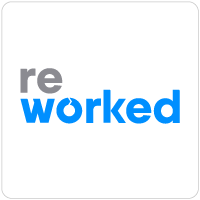Why Employee Experience Makes or Breaks the Customer Experience
Imagine sitting down for dinner at a restaurant you’ve been waiting to try for weeks. The ambiance is lovely and the room smells divine, but the server assigned to your table has the personality of a floor mop. Every interaction is forced and uncomfortable, and you feel more like a burden than a guest. No matter how delicious the meal was, receiving the check comes with a sigh of relief.
Great customer service would have helped make dining out an exceptional experience. Not only would the interaction have been more pleasant, but the customer/employee relationship is such a critical touch point for a business. Without happy and engaged employees, the customer experience suffers—and so does a business’ bottom line.
The Customer & Employee Experience
Compare the definitions for “customer experience” and “employee experience” and you’ll find some striking similarities:
- Customer experience (CX) is how a customer perceives their interactions with a brand
- Employee experience (EX) is how an employee perceives their interactions with an organization
The focus on each of the definitions is perception, yet neither is determined by a single event. Instead, both are based on a culmination of all interactions had over the course of the relationship. For many businesses, employees are often the first, last, and only points of contact with customers. This is true for a variety of industries—from hospitality (in the example above) to retail, financial services and startups. Cultivating a strong customer/employee relationship is key to your business’ success—and a major reason why the employee experience is so influential.
Like customer experience, employee experience is determined by a sum of interactions from their everyday work-life. Sure, employee engagement initiatives (such as company outings or wellness incentives) improve morale in the short term. But these tactics don’t have lasting impact on the majority of today’s largest workforce: Millennials.
EX in a Millennial Generation
According to McKinsey, Millennials account for 30 percent of the population and by 2025 will represent 75 percent of the global workforce. Compared to previous generations, their career pursuits focus on work/life balance more than ever before, centering around meaningful work, flexibility and autonomy, as well as connection and mentoring. It’s no wonder then, that employee experience is a trending topic among recruiters and other HR professionals.
Of course, there is a far more fiscal incentive for attracting today’s top talent. In their latest State of the American Workplace report, Gallup found that highly engaged employees don’t just lead to a better workplace experience. Companies with great workplace experiences had 10 percent higher customer metrics—and 20 percent higher sales.
The Employee Comes First
As noted by Tallwave CEO Jeff Pruitt, “Your employees’ experience should reflect the one you’re trying to provide to customers.” In a contributed piece for Inc., Pruitt writes that too often companies create cultures that don’t extend beyond office walls. “Free-lunch Fridays or break rooms equipped with video games—great for morale, sure. But it does little to involve the customer.”
To break out of this, he offers a strategy for aligning employee and customer experience:
- Create a culture that reflects your values. Employees should be able to lean on core values when managing clients and delivering experiences.
- Find ways to empower employees at every level. All employees should be able to deliver a consistent experience and make appropriate decisions that elevate the customer’s impression of the brand.
- Have a clear mission. A well-defined mission helps employees know what the company does, why they do it, and what sets them apart.
- Measure employee experience. From social media reviews to net promoter scores, monitor how employees perceive your organization so know where to improve.
The last tip—measure—is especially important if you plan to improve your employee experience. As explained by McKinsey: How people show up and interact with companies will differ fundamentally because employers are recognizing they must reimagine every aspect of work – from recruitment and job evaluations to collaboration, perks, and the workplace itself.
Remember: Talent begets talent.
Looking to improve your employee experience? Here are a few things to take note of when it comes to company culture:
- Celebrate your recognitions. Appreciate teams and individuals for their commitment to core values. Take pride any HR-focused awards as they quickly become currency for potential recruits.
- Stop focusing on numbers. Shift your attention away from engagement numbers and focus on how people experience your organization day by day.
- Conduct your own review. Use review season as a time to create SMART goals that inspire the whole staff to exemplify the organization’s core values.
And above all, treat employees how you want your customers to be treated. By exemplifying civility and great service to your employees, they’ll return the favor and build even stronger customer relationships.
Join us June 17th – 19th 2019 at DWX to learn more about how build a modern and meaningful experience for your employees.



